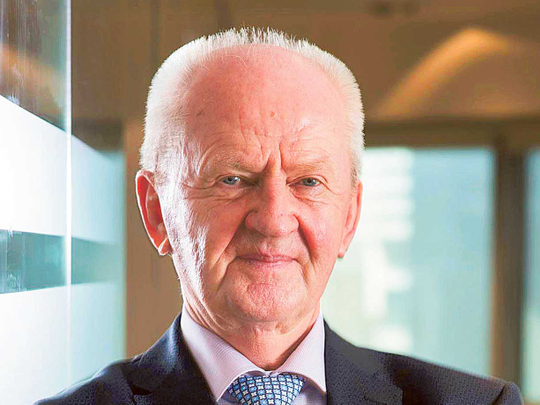
Abu Dhabi: The UAE’s path towards nuclear energy took another step forward after the Federal Authority for Nuclear Regulation (FANR) announced on Sunday that it approved the licensing for transporting and storing nuclear fuel at the Barakah Nuclear Power Plant.
The two licences have been granted to the Emirates Nuclear Energy Corporation (ENEC) and Nawah Energy Company respectively, with the former getting the licence to transport the nuclear fuel, and the latter getting the licence to store the nuclear fuel at the Barakah site.
“This is a major decision that our board of management has made, it will allow the operators [of the Barakah Nuclear Power Plant), ENEC and Nawah to get fresh nuclear fuel into the country, and more particularly to the Barakah site. This is a major milestone for us, we have worked diligently for many months until we were convinced that everything was ready to start the transportation and storage of nuclear fuel,” said Christer Viktorsson, Director General of FANR.
Ian Grant, Deputy Director General for Operations at FANR, explained that the nuclear fuel would be shipped in transport casks from South Korea to the UAE, and then loaded onto trucks to transport the fuel to the nuclear reactor site.
“The fuel assemblies are loaded into transport casks and shipped from the Republic of Korea, [afterwards they are] trucked by road from the UAE port to the Barakah site. The transport casks are unloaded, checked and opened. [The] fuel assemblies are inspected individually and moved to the storage locations.”
“The FANR Board of Management approved the issuance of the licences … after FANR’s staff carried out thorough assessments and inspections to ensure that the applicants met FANR’s stringent safety, security and safeguards requirements,” he added.
In terms of the time frame for when the Barakah Nuclear Power Plant would become operational, Grant said that unit 1 was set to go operational in May.
“We have a schedule for the first unit [to begin operations] in May, but I emphasise that we are not bound by that schedule, but will grant the license [for operations] when the operator demonstrates that they are completely ready,” he said.
Viktorsson echoed the same sentiments, adding that, “We are not bound by that schedule [to begin operations in May], we are bound by the readiness of the operator.
“I can assure you that we are not feeling any pressure from anyone to issue the license early, we are independent and will take the necessary time if it is needed,” he added.












